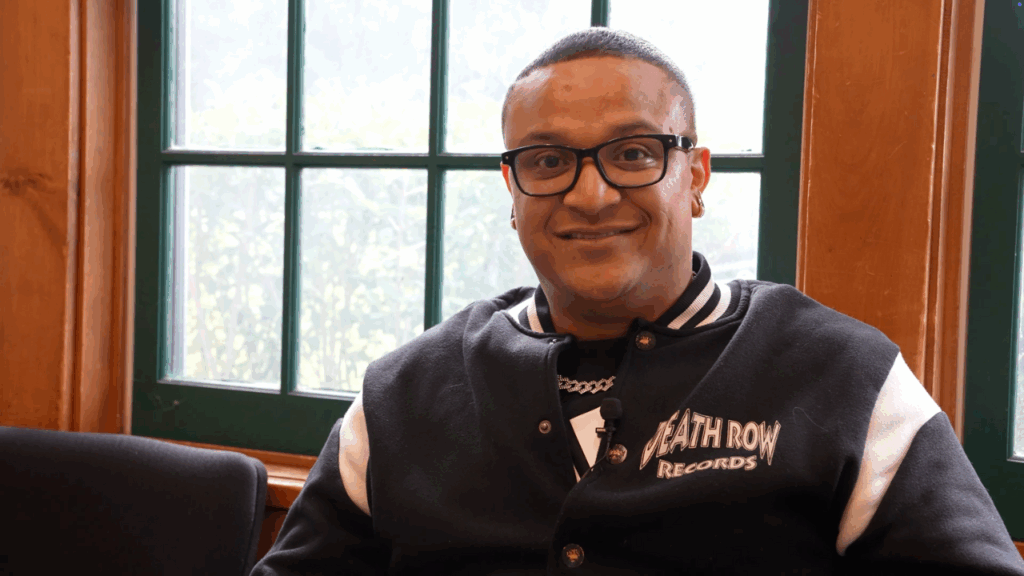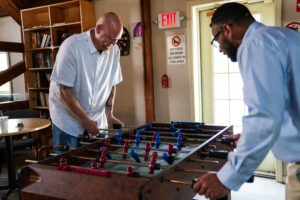The hands that crafted chart-topping tracks for hip-hop heavyweights could barely hold steady long enough to press play. For Ariel, a DJ and music producer who had worked with artists like Waka Flocka Flame, Sammy Adams, and the New Boyz, the music had stopped, and with it, everything that mattered.
“I was lost,” Ariel reflects, his voice carrying the weight of someone who has stared into the abyss and lived to tell about it. “I was in a state of hopelessness, I had no will anymore, and I was struggling.”
His clean date, December 28th, 2024, is still fresh, the recovery so new you can almost see the determination radiating from him as he speaks. But the journey to that date is a story of falling from the highest highs to the lowest lows, and finding redemption in the most unexpected places.
When the Music Dies
For most of his life, music had been Ariel’s world.
“I’ve been a DJ since I was 8 years old,” he says. “I’ve been able to travel a lot. I got to play all over the world. I’ve produced for the New Boyz, Waka Flocka, Sammy Adams, Cali Swag District.”
The lifestyle that came with success in the music industry was intoxicating in more ways than one.
“I spent very many years not sober, just traveling, enjoying my life,” he admits. But what started as celebration slowly morphed into something darker. Crack cocaine and alcohol became constant companions. The substances that once seemed to fuel creativity eventually began consuming everything in their path.
“I was smoking crack, I was drinking, I was doing everything I wasn’t supposed to do,” Ariel recalls.
The downward spiral was swift and merciless. One by one, the pillars of his life crumbled.
“My record label didn’t want to work with me anymore. Musicians didn’t want to work with me anymore. My parents stopped talking to me. My kids’ mother blocked me, I had nothing.”
For someone whose career depended on showing up, being present, and delivering performance after performance, addiction had made him unreliable to the point of being toxic.
“I was a liability to the biggest amount. You barely knew if you were going to get me on stage, and you’d have to keep me away from the alcohol and everything else just to get me on the stage.”
The industry that had once embraced his talent now saw him as a risk they couldn’t afford to take.
Ground Zero
“It was Ground Zero,” Ariel says, pausing to let the weight of those words settle. “And when you get to Ground Zero, there’s nowhere else to go but up.”
That’s when Swift River entered the picture. Not for the first time, but for what would prove to be the life-changing time.
“I had a bunch of people who I know who had gone here,” he explains. “They referred me over here.”
The decision to seek treatment wasn’t just about choosing a facility; it was about choosing to live. But even with referrals from trusted friends, the prospect of walking through Swift River’s doors was terrifying.
“It’s nerve-racking, you know. You don’t know what you’re walking into. You don’t know if you should anticipate something, if you should not anticipate something,” he remembers. “I had to really get over a lot of fears by walking in this door. What am I going to do? Am I going to make friends? Am I going to like the people? How’s the staff? How’s the food? It’s a whirlwind of questions.”
But what he found behind those doors was something unexpected: acceptance, even for someone returning for a second chance.
The Power of Second Chances
Swift River’s philosophy isn’t just about treating addiction, it’s about understanding that recovery is rarely linear. For Ariel, this meant being welcomed back when his first attempt at sobriety didn’t hold.
“I’ve been here more than once. I’ve been here twice,” he says. “The second time they welcomed me with open arms and said, ‘Let’s go. Let’s do this again. You did it last time, you’re going to do it again.'”
Rather than viewing relapse as failure, Swift River recognizes it as part of many people’s journey.
“But I had to put more effort in, and I had to really dig down deep,” Ariel acknowledges. “But I did, and I wouldn’t have traded it for the world.”
The treatment environment itself plays a crucial role in this acceptance. Swift River’s serene and secluded setting in the Berkshire Mountains is suitable for people wanting to escape daily life’s distractions and triggers and focus entirely on recovery.
“Once you get through the door and you start to see the staff and how much they care, and the intake process and just how they check on you and just make sure you’re doing OK, it’s beautiful,” Ariel reflects. “The community living and the groups and everything that encompasses coming in here is a lot. But again, it’s worth it.”
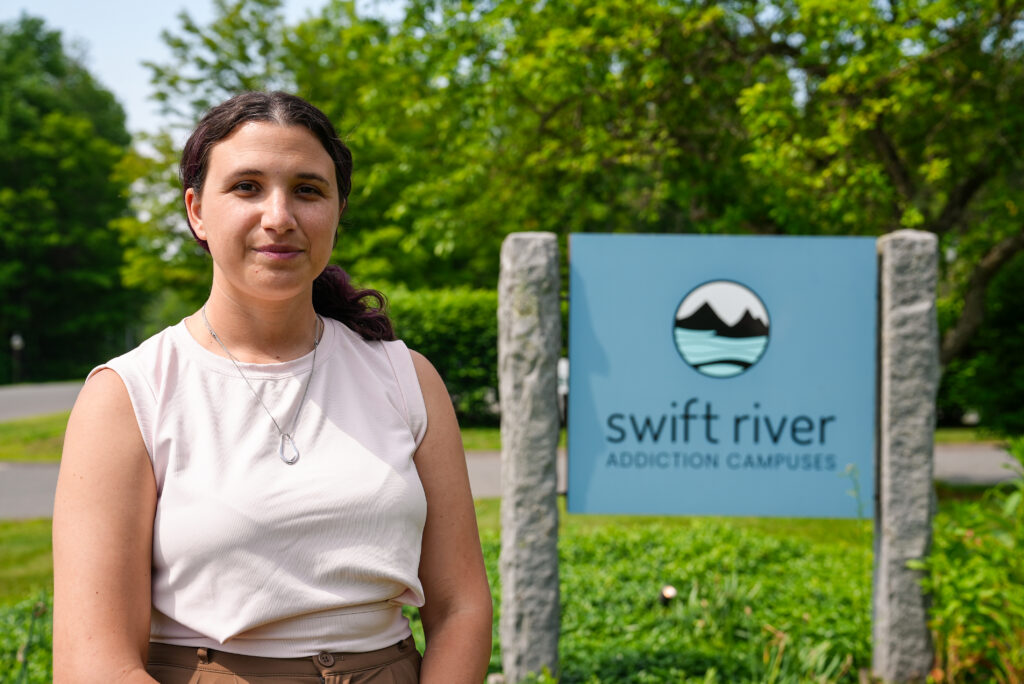
Adventures in Recovery
One of the most transformative aspects of Ariel’s experience at Swift River was the adventure therapy program, led by a staff member he remembers with particular fondness: Rob. Swift River’s holistic and personalized approach to treatment encompasses a variety of complementary therapies, including adventure therapy, experiential therapy, and fitness therapy, all set in a wilderness setting with hiking trails.
“Rob runs the challenge course, the ropes course,” Ariel explains. “He also does anything outdoorsy. Mountain biking, cross country skiing, the ropes course. Rob is one of those very special people that you’ll never forget. The British accent will get you every time, but he’s so intelligent. He’s so charismatic. He’s so easy to be able to open up to because he’s gone through a lot of the same life experiences as the rest of the staff here.”
What made Rob’s approach particularly effective wasn’t just the physical activities. It was the philosophical framework he brought to each outdoor experience. Swift River’s master-level therapists use adventure courses, cross-country skiing and more outdoor activities to create a balanced life approach in recovery.
“We’ve gone on hikes with Rob,” Ariel recalls. “We did cross country skiing, mountain biking, hiked through the woods over here, anything outdoorsy. And the whole time he’ll be talking about the group and the connection and your connection to the outdoors and how he feels connected.”
This experiential approach opened new avenues of self-discovery for Ariel.
“I never thought about what my connection to nature was. I never once thought about it. Rob’s talking about how nature growing up was like a huge part of his life because he could escape and he could get away with the trees and the breeze. And I never thought about that.”
The revelation was profound. “Once he started talking about it, it opened up a new door for me. Like, ‘Huh, OK, this is a different outlook.’ Rob will change your outlook on things very quickly.”
Learning to Breathe
While adventure therapy provided new perspectives, it was the mindfulness and meditation training at Swift River that gave Ariel practical tools for managing the demands of his high-pressure career.
“I learned a lot of different meditation tactics here, and they’ve followed me,” he says.
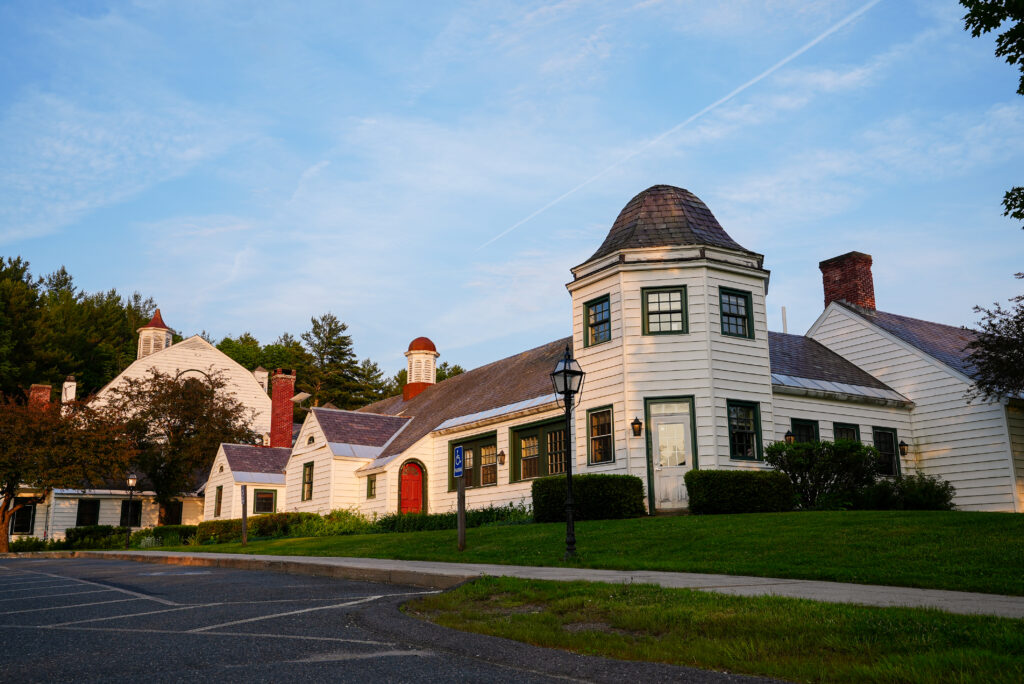
For someone accustomed to the relentless pace of the music industry, the concept of slowing down was foreign.
“I’m so used to being on the go 24/7. Go, go, go, move, move, move. Don’t stop. Don’t breathe. Just keep going.”
The meditation techniques taught by staff members Joe and Rob became game-changers.
“Just taking a minute to reset or rebalance, get your head straight. Deep breathing exercises that I learned in here from Joe and from Rob, they’ve been life-changing.”
The beauty of these techniques lies in their accessibility and practicality.
“It doesn’t always have to be like a 30-minute, hour meditation. Just taking a few minutes to yourself to refocus has been massive. And those tools I learned here, I had no idea about meditation and sound baths and all this stuff. When I first got here, I did not want to meditate. I did not want to pray, didn’t want to do any of those things. I just wanted to maintain that go, go, go.”
But as his recovery progressed, he began to understand the value of these moments of stillness.
“These days I’m able to take a step back and be like, ‘You need to chill. You’re doing too much. You’re going to wear yourself out. And when you wear yourself out, nothing good is going to happen.'”
Back in the Booth
The true test of Ariel’s recovery came when he returned to the music industry, an environment notorious for its party culture and easy access to substances.
“When I first decided I was going to get sober, my label had dropped me. Nobody wanted to make music with me anymore. Everybody was done with me.”
But sobriety, rather than hindering his creativity, enhanced it.
“These days I can show up. I can do my job properly, I can make those connections that I need to, and I really thrive in that environment. I never thought I could thrive in it without drugs or alcohol.”
The clarity that comes with sobriety has transformed his approach to work.
“These days, I walk in and it’s much easier to do a job when you’re clear-headed, opposed to when you’re not.”
The meditation and mindfulness techniques learned at Swift River have become essential tools for managing the pressures of his career.
“Multiple times a day now, I just need to sit and recenter. Give me 10 minutes to just clear my head, let me readjust, let me realign, let me allow myself to have that time so I can be the best version of myself.”
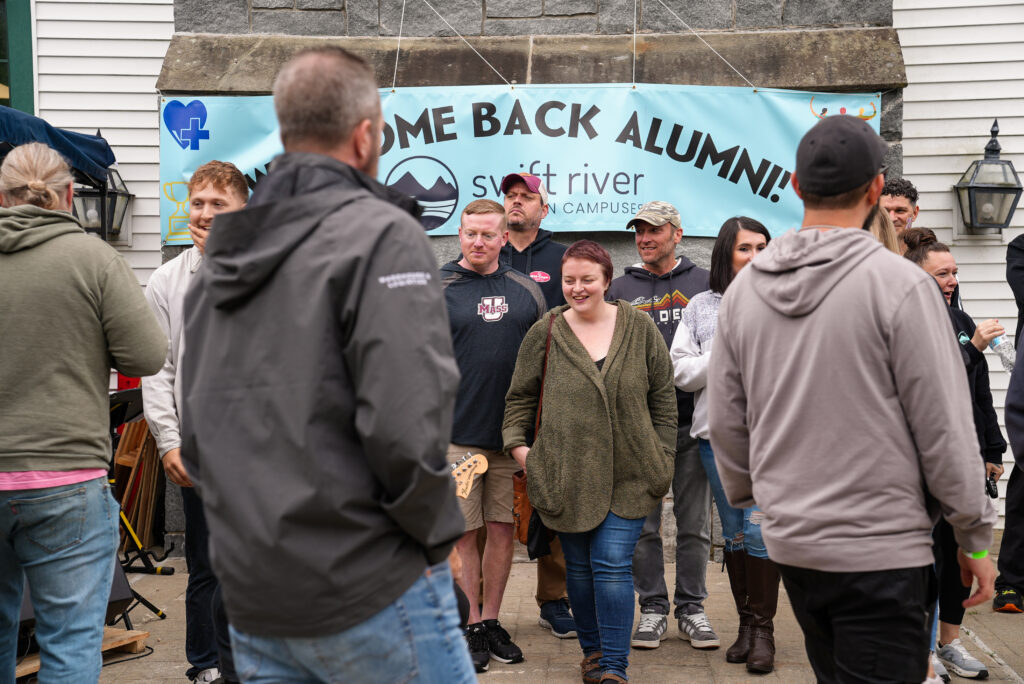
The Group Room
Standing in the group therapy room where he spent countless hours working on his recovery, Ariel reflects on the transformation that took place within these walls. Four aspects of healing guided him: physical, emotional, mental, spiritual.
“Just looking at the board right now, physically, emotionally, mentally, spiritually, that’s what I was chasing. I was robbed of all those things,” he says. “I had no peace of mind. My body was falling apart. Emotionally, I was at that of a six-year-old. And spiritually, I wanted nothing to do with God. I thought the higher power and God thing was such a sham.”
The group process at Swift River isn’t just about sharing experiences—it’s about rebuilding the fundamental aspects of human connection that addiction destroys.
“We used to take the Expo markers and would write random words in different places in the room for the group facilitator to find at the beginning of class,” Ariel remembers with a smile. “That little moment of laughter was, like, the perfect way to start a group because everybody was sort of light. The tenseness of the group would be off, and people felt much more apt to share whatever’s going on.”
These small moments of levity served a crucial therapeutic purpose, creating space for vulnerability and authentic connection.
The Alumni Network
One of Swift River’s most powerful tools for long-term recovery isn’t something that happens during treatment, it’s what happens after. Swift River creates a long-term, lifelong network of alumni, using evidence-based therapies to teach people to live free of substance abuse and create a passion for life in sobriety.
“The alumni program is this amazing thing, you still keep in touch with everybody. People check on you. People want to know you’re doing well,” Ariel explains. “And they get a really good idea of that, and they really see that you care and they care. And when two groups of people meet in the middle, it really is a beautiful thing.”
This ongoing support system has proven crucial for Ariel’s sustained recovery.
“I’ve made friends for the rest of my life through coming through Swift River. We come together a couple of times a year, and Joe does all these events, and Rob will come.”
The alumni network serves multiple functions: accountability, support, and proof that long-term recovery is possible. For someone in early recovery, seeing others who have successfully navigated the challenges ahead can be profoundly motivating.
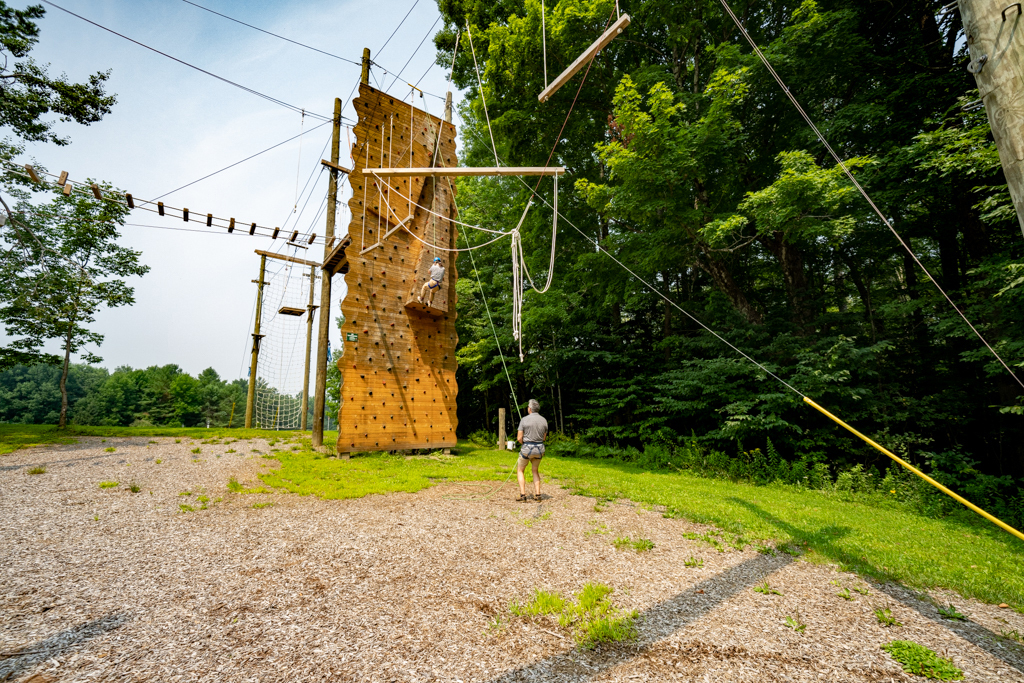
Rebuilding What Was Lost
The most profound measure of Ariel’s recovery isn’t found in his renewed career success, it’s in the restoration of his family relationships.
“My kids are back in my life. My parents talk to me again. Things that I thought would never come back came back, and for that to happen is nothing short of a miracle.”
This rebuilding process required more than just stopping drug and alcohol use. It demanded the kind of deep personal work that Swift River specializes in. Swift River’s treatment approach combines evidence-based therapies with experiential activities to address the root cause of addiction, including individual therapy, group therapy, and family counseling.
“I’m incredibly grateful that this place gave me the tools and the opportunity to do that,” Ariel says. “Life is so great these days.”
The transformation is evident not just in what he’s gained back, but in how he approaches challenges differently. The meditation techniques, the connection to nature, the understanding of community—all of these elements work together to create a foundation for sustained recovery.
A Message for Those Still Struggling
For others who might be standing where he once stood, at Ground Zero with nowhere to go but up, Ariel’s message is both honest and hopeful.
“Don’t quit. Don’t stop. Just get here. Half the battle is just showing up,” he says. “Just get yourself to a program. It’s not fun. I’ll be the first to admit, it’s not fun, but it’s worth it. Your whole life will come back to you. Things that you never thought you’d imagine your life doing, you can do. It’s a beautiful process. You just need to join the fight.”
His words carry the authority of lived experience. Ariel is someone who has walked through the fire and emerged on the other side.
“I know a lot of people have kids and moms and dads. You want to be the best dad, the best son, the best daughter, the best anything you can. And this is the best place to start. This place changes lives.”
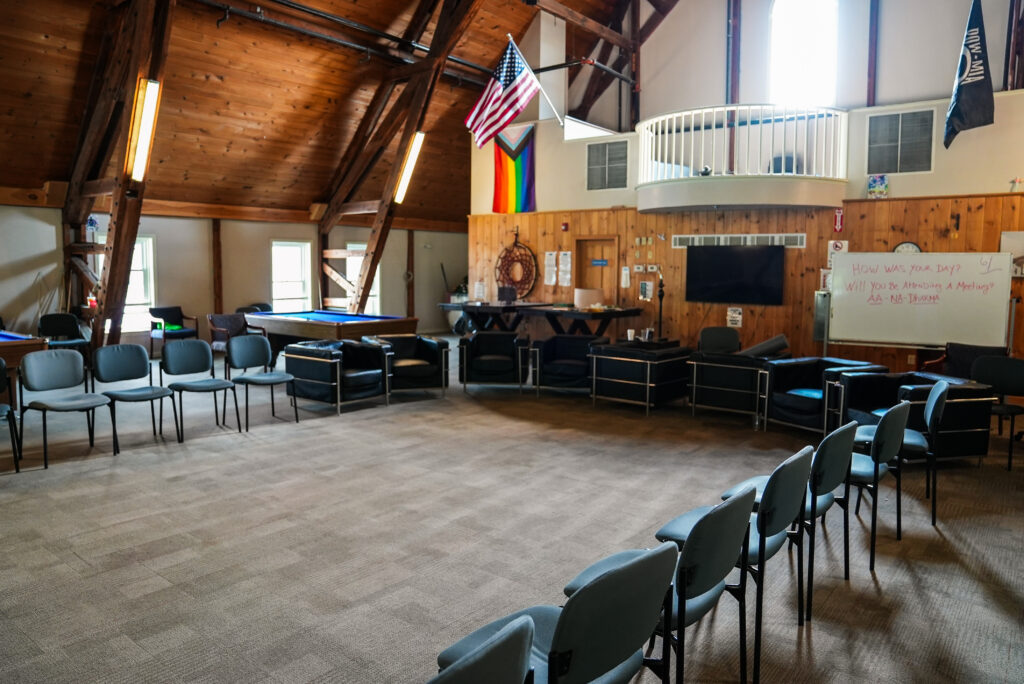
The Beat Goes On
As Ariel prepares to leave the group room where so much of his healing took place, there’s a sense of full-circle completion. The man who once couldn’t be trusted to show up for a gig is now someone who can show up and do his job properly. The artist who thought he needed substances to create now finds that sobriety enhances rather than hinders his creativity.
“I have the best job in the world, I get to make music for people. I make people dance. It doesn’t get much better than that,” he says.
But perhaps more importantly, he’s learned that there’s more to life than the music. The meditation practices, the connection to nature, the community of recovery—these have become as essential to his well-being as any beat or melody.
Looking at the board one more time, he reflects on a question: “What are you grateful for?”
“I’m grateful for Swift River. I’m grateful for the opportunity. I’m grateful that these people never gave up on me.”
In the end, Ariel’s story isn’t just about overcoming addiction, it’s about discovering that the music of life is richer, more complex, and more beautiful when experienced with clarity, connection, and community. At Swift River, he learned how to live.
“Come to Swift River, be a part of the unit,” he says with the conviction of someone who has found his way home. “Because this unit’s wild, and it’s life-changing.”
If you or someone you love is struggling with addiction, Swift River’s comprehensive treatment programs can help you find your way back to the life you deserve. Call today to speak with an admissions specialist about how our evidence-based therapies, adventure programs, and ongoing alumni support can guide your recovery journey.







